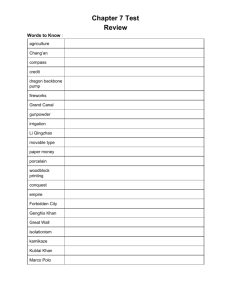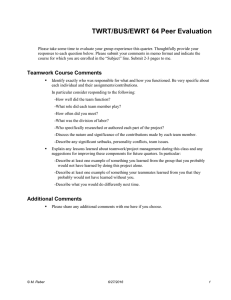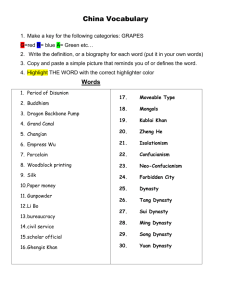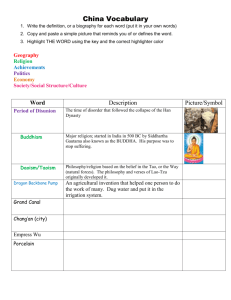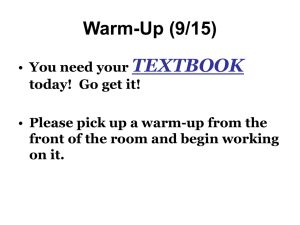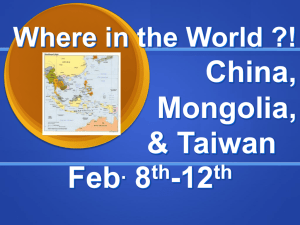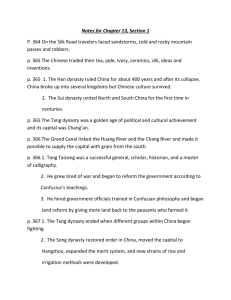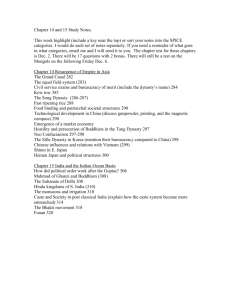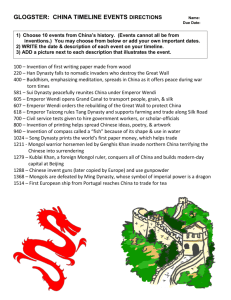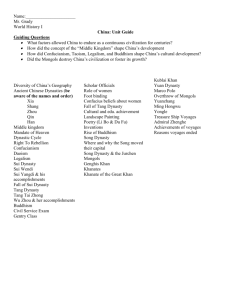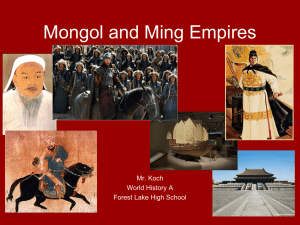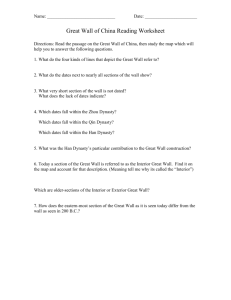APWH Lesson Feb 5 and 6 2015
advertisement
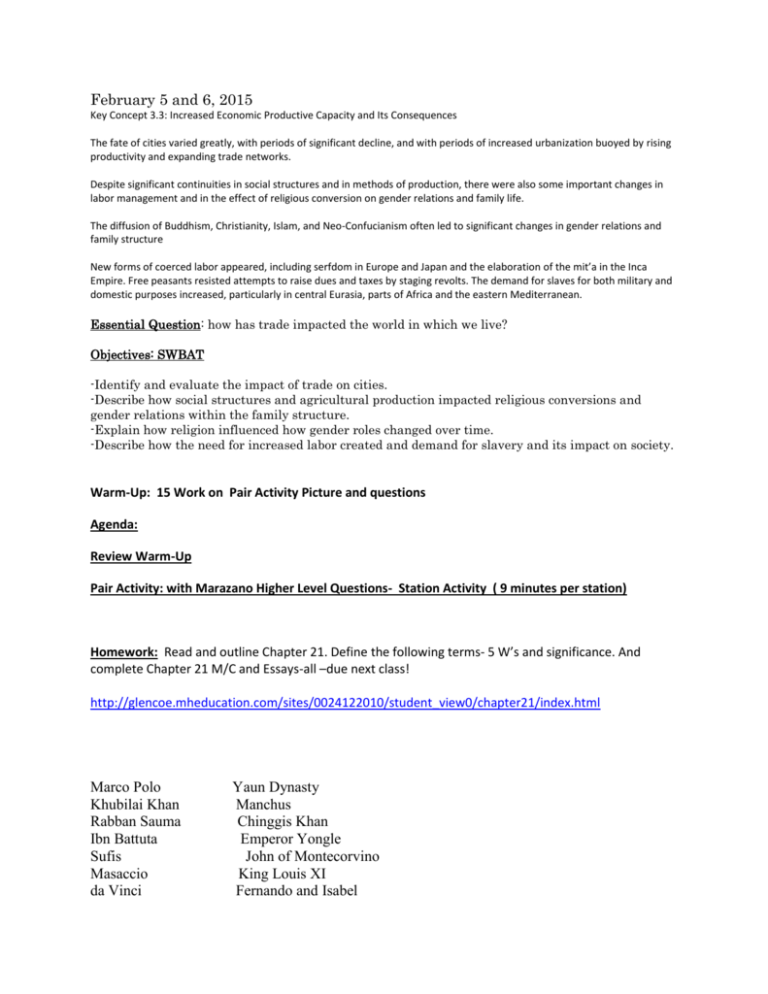
February 5 and 6, 2015 Key Concept 3.3: Increased Economic Productive Capacity and Its Consequences The fate of cities varied greatly, with periods of significant decline, and with periods of increased urbanization buoyed by rising productivity and expanding trade networks. Despite significant continuities in social structures and in methods of production, there were also some important changes in labor management and in the effect of religious conversion on gender relations and family life. The diffusion of Buddhism, Christianity, Islam, and Neo-Confucianism often led to significant changes in gender relations and family structure New forms of coerced labor appeared, including serfdom in Europe and Japan and the elaboration of the mit’a in the Inca Empire. Free peasants resisted attempts to raise dues and taxes by staging revolts. The demand for slaves for both military and domestic purposes increased, particularly in central Eurasia, parts of Africa and the eastern Mediterranean. Essential Question: how has trade impacted the world in which we live? Objectives: SWBAT -Identify and evaluate the impact of trade on cities. -Describe how social structures and agricultural production impacted religious conversions and gender relations within the family structure. -Explain how religion influenced how gender roles changed over time. -Describe how the need for increased labor created and demand for slavery and its impact on society. Warm-Up: 15 Work on Pair Activity Picture and questions Agenda: Review Warm-Up Pair Activity: with Marazano Higher Level Questions- Station Activity ( 9 minutes per station) Homework: Read and outline Chapter 21. Define the following terms- 5 W’s and significance. And complete Chapter 21 M/C and Essays-all –due next class! http://glencoe.mheducation.com/sites/0024122010/student_view0/chapter21/index.html Marco Polo Khubilai Khan Rabban Sauma Ibn Battuta Sufis Masaccio da Vinci Yaun Dynasty Manchus Chinggis Khan Emperor Yongle John of Montecorvino King Louis XI Fernando and Isabel Donetello Grand Michelangelo Brunelleschi Erasmus Petrarch Pico della Ming Dynasty Emperor Hongwu Prince Ivan III Zheng He Prince Henrique of Portugal Bartolomeo Dias Vasco da Gama Mirandola Cristoforo Bubonic plague The Renaissance Columbo
